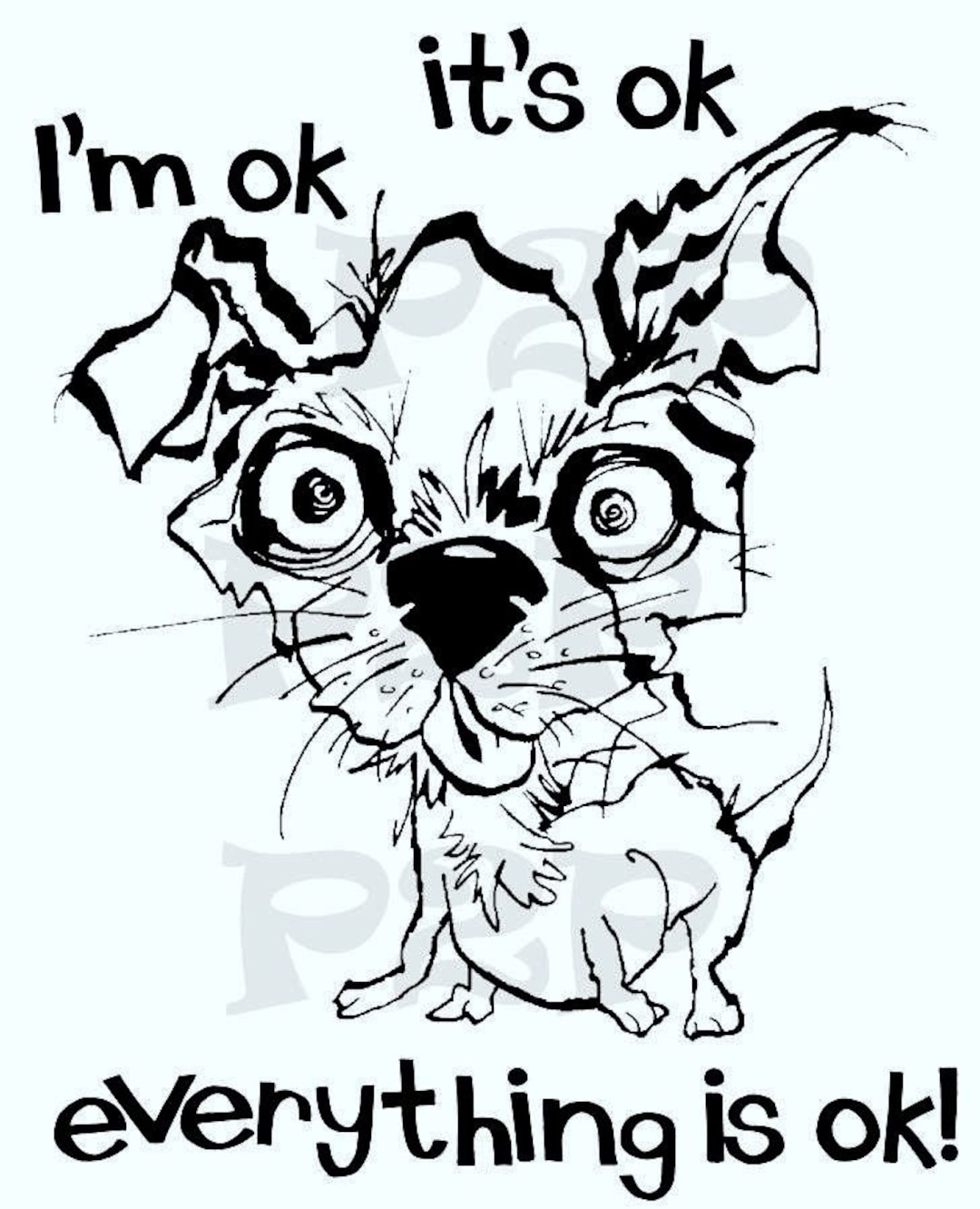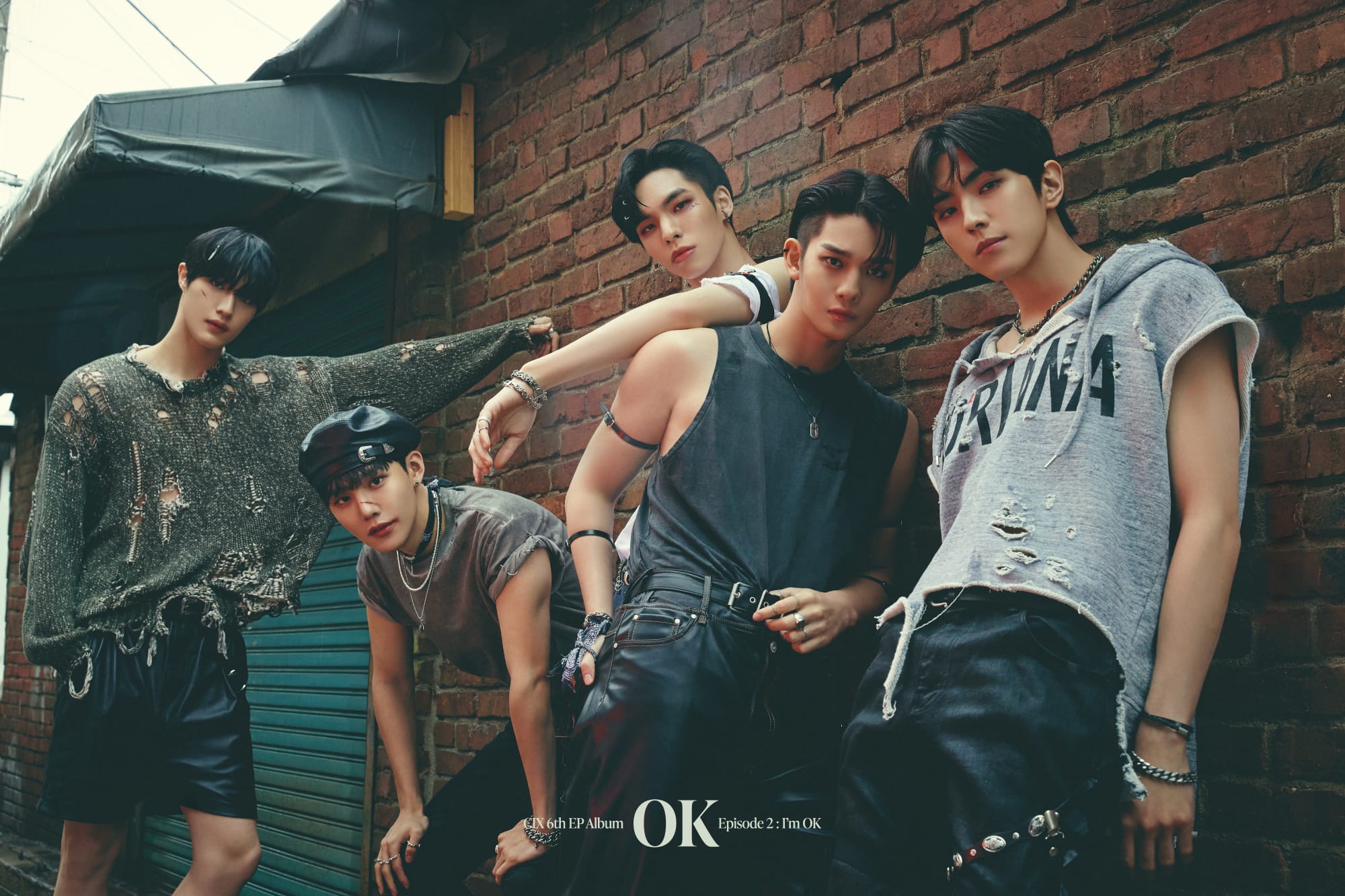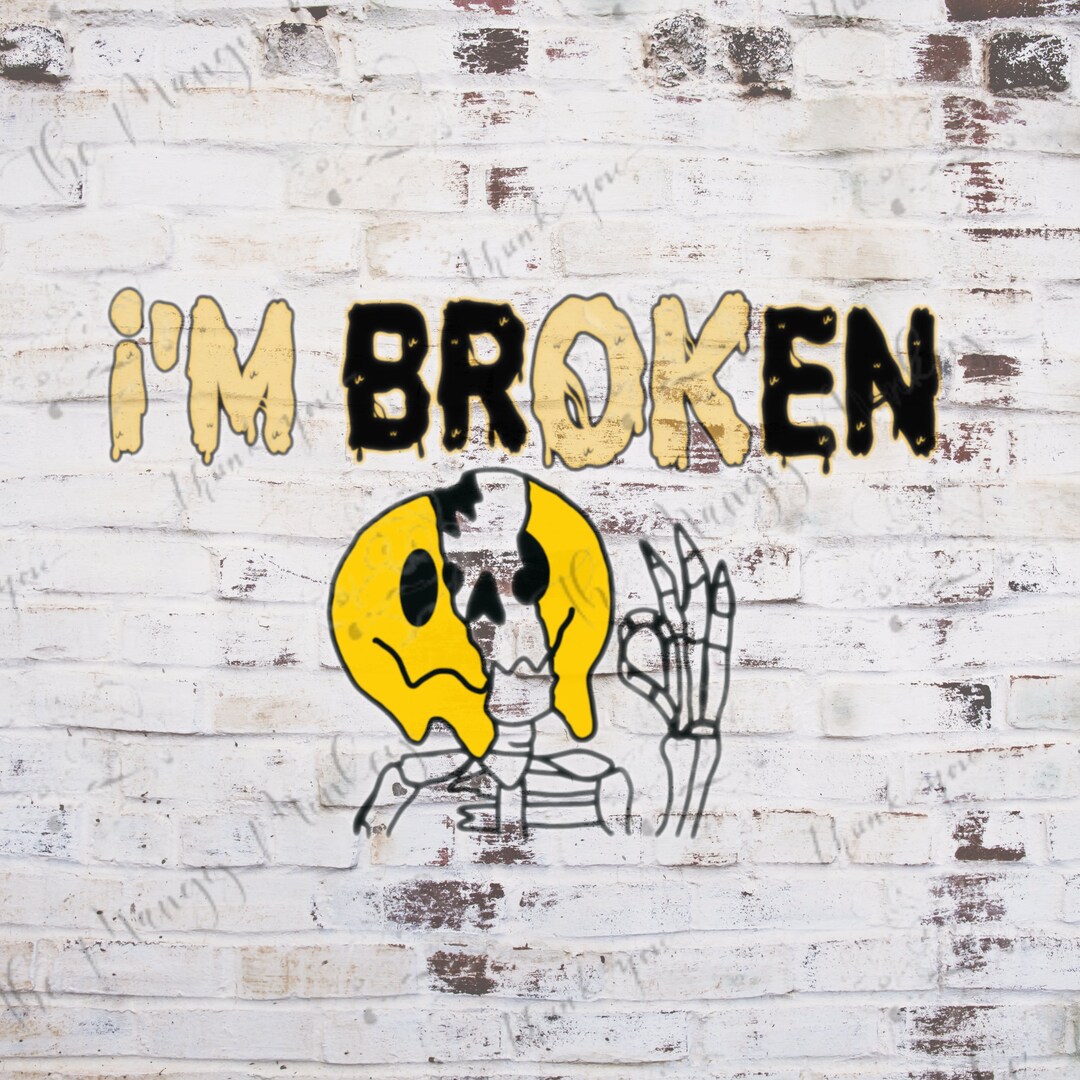I'm OK - What We Really Mean
When someone says "I'm OK," it often carries more weight than just those two simple words. This phrase, so casually tossed into everyday conversation, actually holds a variety of meanings, depending on the situation and the person speaking. It is a common expression, used by many to convey a state of being, or perhaps a lack of need for anything at that particular moment. So, it's almost as if these words serve as a quick signal, a way to communicate a general sense of equilibrium without having to offer up a long explanation of one's current condition.
For some, saying "I'm OK" might mean there are no immediate problems or concerns that need addressing. It suggests a certain level of acceptance, a quiet nod to how things are right then. You know, it's a way to let others know that everything is settled, or that they are content with the present circumstances, without showing too much excitement or any real strong feelings about it. This phrase, in a way, can feel a bit neutral, indicating a lack of strong opposition to something, or simply a quiet agreement.
We use these words in many different settings, and their true sense can shift quite a bit. From a quick greeting to a deeper comment about one's inner state, the meaning can change with the voice that speaks it and the ear that hears it. It's really quite interesting how a short phrase can hold so much potential for different messages, depending on the people involved and the atmosphere around them. That, is that, the words themselves remain the same, but the unspoken parts around them give them their specific flavor.
Table of Contents
- The Quiet Power of "I'm OK"
- When "I'm OK" Means "No Help Needed"
- How Does "I'm OK" Compare to Other Phrases?
- Is "I'm OK" a Social Shield?
- Does Context Shape "I'm OK" Meanings?
- "I'm OK" in Pop Culture - What Do Songs Tell Us?
- The Deeper Sides of "I'm OK"
- What Happens When We Hear "I'm OK"?
The Quiet Power of "I'm OK"
When someone states, "I'm OK," it often suggests a state of not needing anything more at that very moment. It's a way of saying, quite simply, that their current situation is acceptable. This phrase, when spoken as "I'm OK with it," tends to sound like an acceptance of something, though perhaps without much excitement or passion. It's more like a declaration of "I have no problem with this," a calm agreement without a lot of fanfare. So, this particular phrasing suggests a quiet acceptance, a sort of peace with what is happening around them.
More Than Just "I'm OK"
On the other hand, the phrase "it's OK with me" can carry a slightly more positive feeling. It hints at a willingness to go along with something, or perhaps even a mild preference for it. This small shift in wording can, you know, change the whole feeling of the statement, moving it from a simple acceptance to something that feels a little more agreeable or even welcoming. The way we arrange these few words really does make a noticeable impact on what we communicate to others, doesn't it? It's a bit like choosing different shades of the same color to paint a picture.
When "I'm OK" Means "No Help Needed"
For many, saying "I'm OK" acts as a way to let others know that they do not need any assistance or support at that time. It puts forth the idea that the person is in a good place, or that their current state is satisfactory without any outside intervention. This is, apparently, a common way to express self-sufficiency, a gentle push back against offers of help. It's a signal that everything is manageable, that there's no need for anyone to step in or lend a hand.
The Subtle Signals of "I'm OK"
A senior citizen, for instance, mentioned that for them, saying "OK, I will" is completely fine and feels very natural. This points to the idea that people speak in different ways, especially depending on where they live and their background. This person also expressed a preference for a simple "thanks" after saying "I am OK as I am," meaning no help is needed. This really highlights how the phrase "I'm OK" can be a clear, simple way to communicate a state of independence and gratitude, too it's almost as if it's a complete thought in itself.
How Does "I'm OK" Compare to Other Phrases?
When we look at other common responses to "How are you?", like "I'm well" or "I'm good," we see some interesting comparisons. The phrase "I'm well" often points to a state of being in satisfactory circumstances or conditions. It suggests a general sense of well-being, a feeling that things are going along as they should. So, it conveys a calm and steady condition, a sort of peaceful existence.
Sorting Out "I'm OK" and Its Cousins
Then there's "I'm good," which can mean being free from sickness or sadness. It implies a state of health and a lack of worry, a feeling of being unburdened. Interestingly, when someone asks "How are you?", the answers "fine" and "good" often carry the same exact meaning, suggesting that there are no issues or problems. This shows how words that seem distinct can, in fact, be used interchangeably in common speech, which is a pretty common thing in language, isn't it? It’s as if they all point to the same basic idea of being in a decent state.
Is "I'm OK" a Social Shield?
A common observation is that saying "I'm OK" can be the easiest way to avoid having to explain how one truly feels. It can serve as a quick way to put a stop to further questions, a polite barrier to deeper conversation. People might say they are OK because they do not want to bother others with their personal issues or concerns. This suggests a desire to protect one's privacy, or to keep things light in a social setting. Basically, it's a social tool, a way to manage interactions without revealing too much.
The Protective Layer of "I'm OK"
This use of "I'm OK" as a social shield is quite common in spoken English, with many variations like "I'm good with that" also being used to express agreement without much fuss. It's a conversational shortcut, a way to keep things moving without getting bogged down in personal details. This practice, you know, highlights a certain social agreement, a shared understanding that sometimes a simple, short answer is preferred over a lengthy personal disclosure. It's a way to maintain a comfortable distance, while still being polite.
Does Context Shape "I'm OK" Meanings?
The meaning of "I'm OK" can really depend on the situation it's used in. For example, in a small group, you might say "Hi, I'm James!" and offer your hand for a shake, a very direct and open way of introducing yourself. However, if you are standing in front of a room full of strangers, introducing yourself might require a more formal approach, something a bit more composed. This shows that the context, the people present, and the setting itself, all play a part in how we choose to communicate, and how our words are understood. So, it's not just the words, but the whole picture around them that gives them their full meaning.
Where "I'm OK" Finds Its Voice
The phrase "I'm OK" also appears in many forms, showing up as colloquialisms used regularly in spoken English. These informal expressions are part of the way we talk every day, making communication feel more natural and less stiff. It is interesting to see how these phrases, even simple ones like "I'm OK," can be found across different cultures and languages, too it's almost as if the core idea is universal. For instance, there are translations of "I'm OK" in Spanish, complete with example sentences and audio guides, showing how this idea crosses language barriers. This suggests a common human need to express a state of well-being or acceptance in a straightforward manner.
"I'm OK" in Pop Culture - What Do Songs Tell Us?
The phrase "I'm OK" finds its way into popular culture, especially in music. There are songs titled "I'm OK" or "It's OK I'm OK" by artists like Tate McRae, BoydPod, and Billkin. These musical pieces often explore the deeper feelings behind the simple statement. For example, some song lyrics express a desire to be left alone, a rejection of comfort or pity, with lines like "Don't comfort me, don't pity me, no need to be by my side, I'm okay." This shows how the phrase can be a declaration of self-reliance, a way to set boundaries with others. It's really quite a powerful statement in those contexts, isn't it?
The Echoes of "I'm OK" in Music
These songs, through their words and melodies, often give us a glimpse into the emotional weight that "I'm OK" can carry. They reveal that sometimes, saying "I'm OK" is not about being perfectly fine, but about a choice to handle things on one's own, or to keep certain feelings private. The music gives these simple words a deeper resonance, allowing listeners to connect with the raw feelings that can sometimes lie beneath a seemingly calm surface. You know, it's a way for artists to express complex human experiences through a very common phrase.
The Deeper Sides of "I'm OK"
Beyond its everyday use, the idea of "I'm OK" has also been explored in more formal ways, such as in the field of transactional analysis. A notable book, "I'm OK, You're OK" by Thomas A. Harris M.D., published in 1969, brought this concept to a wider audience. This work looks at how people interact and how their internal states affect those interactions. It suggests that a fundamental sense of being "OK" is important for healthy relationships and personal well-being. So, it's not just a casual phrase, but a concept with some significant psychological weight, apparently.
The Psychological Weight of "I'm OK"
The book's popularity shows that many people find value in thinking about their own sense of being "OK" and how that relates to others. It encourages a view where individuals see themselves and others as fundamentally worthy and capable. This perspective can help people build better connections and feel more at ease in their daily lives. It's a way of looking at human nature that suggests a basic acceptance of oneself and others, which, you know, can be quite comforting in a world that often feels very demanding.
What Happens When We Hear "I'm OK"?
When someone tells us "I'm OK," our response can vary depending on our connection to them and the situation. Sometimes, it's a simple acknowledgment, a quick nod, and we move on. Other times, if we sense a deeper meaning, we might pause, wondering if there's more to their statement. This phrase, in its simple form, asks us to respect the speaker's stated condition, whether it's a true declaration of well-being or a polite way to keep things brief. It's a sort of boundary, indicating how much information the speaker is willing to share at that moment, and we, like your, often respect that unspoken request.
Our Responses to "I'm OK"
Thinking about our own well-being, the idea of being "OK" also connects to the importance of making time for activities that are not just duties or tasks. People can get tired quickly when their lives are only about things they have to do. This suggests that truly being "OK" involves a balance, a mix of responsibilities and personal pursuits. It's a reminder that a genuine state of being "OK" often comes from a life that allows for personal space and activities that bring joy, not just obligation. Basically, it’s about finding a good rhythm in life, which is a pretty big part of feeling settled and content.

I'm Ok It's Ok Everything is Ok PNG Clip Art - Etsy

CIX Makes Comeback With 'OK' Episode 2: I'm OK' - Finale For The 'OK

I'm Broken / I'm OK Digital Download, Smiley Face Skellington